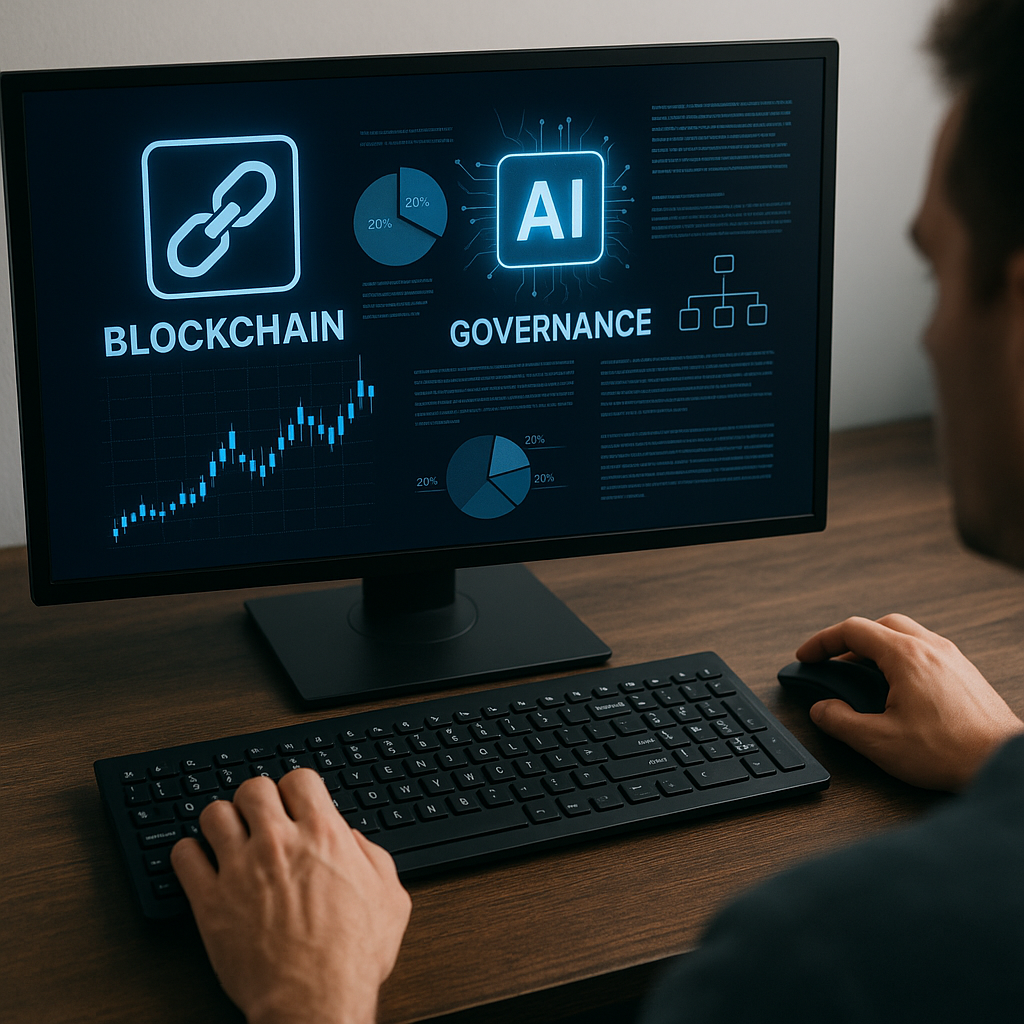AI agents could transform blockchain decision-making and strengthen decentralized trust
For AI-assisted governance to succeed, it must adhere to principles of diversity, decentralization, and accountability. They caution that over-reliance on automated systems without robust safeguards could introduce new vulnerabilities, including the risk of coordinated manipulation of the AI agents themselves.

Efforts to strengthen the reliability and resilience of decentralized decision-making in blockchain networks are gaining new momentum with a study proposing an AI-driven governance model. The research explores how artificial intelligence can help decentralized autonomous organizations (DAOs) avoid recurring governance crises while keeping decision-making transparent and accountable.
The study, titled “Rethinking Blockchain Governance with AI: The VOPPA Framework” and published in Computers, analyzes failures in existing blockchain governance models and outlines a new framework that integrates predictive machine learning into voting systems. The authors argue that this approach could reduce manipulation, improve participation, and deliver more reliable outcomes in blockchain-based communities.
Persistent weaknesses in current blockchain governance
The researchers acknowledge that blockchain technology’s decentralization redistributes authority but also introduces critical weaknesses in governance. Decision-making in DAOs often relies on token-weighted voting, which tends to favor large holders and exposes communities to coordinated attacks and manipulation.
Historical breakdowns underscore these risks. The paper highlights governance disputes and failures in high-profile cases such as The DAO hack, the Build Finance takeover, and contentious forks like Bitcoin Cash. These incidents show that when crises emerge, decentralized decision-making can become fragmented, slow, and vulnerable to exploitation.
The authors note that while hybrid models, combining on-chain and off-chain governance, have been adopted by some platforms, they still struggle with inclusivity, agility, and transparency. Community members often face information overload, and participation rates remain low, weakening the collective intelligence that decentralized governance is meant to harness.
Integrating AI into decision-making
To address these challenges, the study examines how artificial intelligence tools can be integrated into governance processes without undermining decentralization. Current applications include natural language processing (NLP) to summarize and analyze proposals, and anomaly detection algorithms to flag suspicious voting behaviors or patterns. Early experiments have also involved autonomous agents participating in votes on behalf of token holders.
However, the authors warn that existing implementations remain limited and pose their own risks, including bias in algorithms, opacity of decision processes, and the possibility of centralization if AI tools become controlled by a few powerful actors. They argue that the role of AI in governance should focus on supporting better decision-making, not substituting for human agency.
The proposed Voting Via Parallel Predictive Agents (VOPPA) framework is a multi-agent system that uses NLP modules to interpret governance proposals and machine learning models to predict the potential outcomes of these proposals based on historical data and measurable indicators. By prioritizing predictive reasoning over preference replication, VOPPA seeks to guide voters with evidence-based projections while maintaining decentralization through diverse and independently operating agents.
Moving toward more resilient and accountable DAOs
For AI-assisted governance to succeed, it must adhere to principles of diversity, decentralization, and accountability. They caution that over-reliance on automated systems without robust safeguards could introduce new vulnerabilities, including the risk of coordinated manipulation of the AI agents themselves.
Key to the framework’s vision is the idea that voters, whether individual participants or community delegates, should retain decision-making power while benefiting from AI-generated insights that clarify trade-offs and forecast outcomes. This approach aims to strengthen participation by lowering barriers to understanding complex proposals and enabling communities to respond more effectively during governance crises.
The authors stress that advancing from token-weighted voting to data-driven and evidence-based governance will require not just new technical tools but also policies and protocols to ensure transparency, explainability, and equitable access to the AI support systems. They highlight the importance of protecting data quality, securing the predictive models against manipulation, and building trust through open-source implementations and verifiable auditing.
- FIRST PUBLISHED IN:
- Devdiscourse










